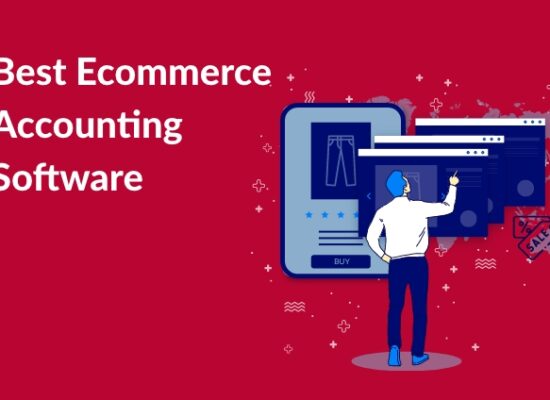- Why do you need Ecommerce tools?
- The Best Ecommerce Tools you should be aware of if you are an entrepreneur.
- Ecommerce Marketing Tools:
- Ecommerce Analytics Tools:
- Ecommerce SEO Tools:
- Ecommerce AI Tools:
- Ecommerce Customer Service Software:
- Ecommerce Automation Tools:
- Choose your suitable e-commerce tool and take your business to new heights.

Anyone selling stuff online needs e-commerce tools! Whether you’re a small business owner, a crafty creator, these tools are your digital buddies. They make selling smoother and help you reach more people.
An excellent saleable product is just the beginning of the bustling online business world. If you really want to thrive in the digital marketplace, you need to make use of e-commerce tools. The right e-commerce platform can make all the difference in how easily your store climbs the search engine ranks. These tools come in all shapes and sizes. Some are designed for small businesses, while others are for big companies. They can help with everything from setting up your online store to managing inventory and processing payments.
Now, what is the best e-commerce platform to boost your store in this competitive scenario? Let’s get on this digital journey and discover the secrets to optimising your online presence.
Read More: How to start an Ecommerce Business?
Why do you need Ecommerce tools?
E-commerce tools make things a ton easier. Imagine trying to handle hundreds of customers without some backup. E-commerce tools swipe away all these problems and help with everything from managing products to keeping track of orders.
Then, there’s the reach. Now, you don’t need to go to everyone and tell them that you run a business and share your business card. Instead, these tools will do it for you. They will show up everywhere and to a maximum of people online and tell them, “Hey! Have a look at this! It is awesome for you!.” With e-commerce tools, your voice echoes far and wide, reaching potential customers everywhere.
Lastly, they’re like your business GPS. E-commerce tools give you insights into what’s working and needs a little boost.
So, you got your answer: why do we need e-commerce tools? Because these tools ensure your business survives and thrives in the big, bustling world of the internet.
The Best Ecommerce Tools you should be aware of if you are an entrepreneur.
Now that we know what these tools are and why they are essential, it is also important to know which is the best in specific fields. So, here they are. Now, you can easily navigate through them and make your business shine.
Ecommerce Marketing Tools:

First, let’s explain e-commerce marketing tools in simple terms. Imagine you have a virtual megaphone and are in a vast online market where everyone is selling stuff. Your goal is to make sure people notice and love what you’re offering. That’s where this e-commerce tool comes in.
From email campaigns to social media wizards, these tools simplify your marketing efforts. You can now connect with your audience by diving into tools that automate your emails and keep your customers engaged. So, buckle up for a journey into the world of e-commerce marketing tools – where simplicity meets strategy, and success is just a click away!
- MailChimp is a great tool for this. It’s like that friend who sends out fabulous emails to people. They help you reach more people, turn browsers into buyers, and keep your audience hooked.
- Brevo : This is another great tool. It’s a handy tool for maintaining consistent email marketing. Offers flexible pricing plans tailored to different budgets, Starting with a free plan also.
- Campaigner : This is One more excellent e-commerce marketing tool and it is is an email marketing and automation solution crafted to aid businesses in crafting, overseeing, and evaluating their email campaigns.
| E-commerce tools | cost | Specifics |
| Mail chimp | $10-300 monthly | Based on the plan and features selected |
| Brevo | Starts at 25$ | Based on the plan taken |
| Campaigner | Starts at 39$ | Based on plan taken |
Features:
- Email Marketing: Contact your customers directly through targeted email campaigns.
- Social Media Integration: Easily share your products and promotions on popular platforms.
- Discount Codes: Create and track promotional codes to boost sales and attract customers.
Pros:
- Increased Visibility: Reach a wider audience and increase brand awareness.
- Customer Engagement: Build relationships through personalised marketing strategies.
- Sales Boost: Drive more sales with effective promotions and marketing campaigns.
Cons:
- Cost: Some tools may have subscription fees or additional costs.
- Overload: Too many marketing tools can be overwhelming, choose wisely.
Ecommerce Analytics Tools:

A lot goes on behind the scenes of your online store. That’s where E-commerce Analytics Tools step in. These tools are like your digital sidekick for running a successful online store. They help you understand how your shop is doing and what your customers like. E-commerce analytics tools are user-friendly and give you a clear picture of your business performance without the technical jargon.
So, if you want a clear idea of your online store’s success, use e-commerce analytics tools. They’re not just tools; they’re your business’s insightful companions.
The best tools for this field are Google Analytics,Adobe analytics, and Shopify Analytics.
- Google Analytics: They help you determine where your customers are clicking from, what interests them, and how long they’re checking out your products.
- Adobe analytics: A robust web analytics platform offering comprehensive customer insights to facilitate well-informed business decisions.
- Shopify Analytics: It provides insights explicitly tailored for e-commerce, helping you track sales, customer behavior, and popular products.
| Tools | Cost | Specific |
| Google Analytics | Free | Google Analytics 360 starts at $150,000 per year. |
| Adobe analytics | Start at $2500 monthly | Basic plan and can go up based on requirement |
| Shopify Analytics | Start at $29 monthly | Basic Shopify plan |
Features:
- Data Tracking: Monitor website traffic, user behaviour, and sales data.
- Conversion Analysis: Understand where customers drop off and optimise for conversions.
- Custom Reporting: Generate tailored reports to gain actionable insights.
Pros:
- Informed Decision-Making: Use data to make strategic business decisions.
- Performance Evaluation: Assess the effectiveness of marketing campaigns.
- User Behaviour Understanding: Tailor your strategies to customer preferences.
Cons:
- Complexity: Advanced analytics tools may require technical expertise.
- Overwhelming Data: Too much data can be confusing without clear objectives.
Read More : 9 Best Ecommerce Platforms for Small Business
Ecommerce SEO Tools:

Have you ever wondered how to make your online store appear the most on search engine blocks? That’s where SEO tools come into play. They help your website climb the search engine rankings. They help your website climb the search engine rankings.
They analyze your website, suggest keywords, and help optimize your content so that search engines like Google take notice. With their guidance, you can climb the ranks, attract more visitors, and ultimately boost sales. Don’t worry if you are new to technology—these tools are quite easy to use. You’ll be mastering the power of SEO like a pro in no time!
Now, the best ecommerce platforms for SEO in this game are SEMrush, YoastSEO and Ahrefs.
- SEMrush: It shows you the best keywords to use in your product descriptions so that your store pops up when people search for something.
- YoastSEO: This WordPress plugin is a go-to for optimising your product pages and improving overall site structure. It offers valuable insights and suggestions to enhance your on-page SEO.
- Ahrefs: It helps you explore your competitor’s backlinks, find link-building opportunities, and monitor your own site’s backlink profile.
| Tools | Cost | Specifics |
| SEMrush | $99.95 per month | Can go higher based on features |
| Yoast SEO | Basic plan is free | Premium can cost $89 per year for a single site |
| Ahrefs | Starts at $99 monthly | Can go higher based on features |
Features:
- Keyword Optimization: Improve website visibility by targeting relevant keywords.
- Backlink Analysis: Evaluate and build quality backlinks to enhance SEO.
- Competitor Analysis: Understand competitors’ strategies for informed decision-making.
Pros:
- Improved Ranking: Boost your website’s search engine ranking for targeted keywords.
- Increased Organic Traffic: Attract more visitors without paid advertising.
- User-Friendly: Many SEO tools offer straightforward optimisation suggestions.
Cons:
- Time-Consuming: SEO results take time; it’s a long-term strategy.
- Algorithm Changes: Search engine algorithms may impact ranking unpredictably.
- Competitive: As SEO gains importance, competition for top spots increases.
Ecommerce AI Tools:

Artificial Intelligence (AI) might sound like sci-fi stuff, but in e-commerce, it’s your secret weapon. They are here to make your life easier! These tools use artificial intelligence to streamline processes, from customer interactions to inventory management. It’s like having a virtual assistant that learns and adapts to your business needs, providing personalized recommendations and automating repetitive tasks.
AI tools help you analyze data, predict trends, and personalize the shopping experience for your customers. Plus, they’re designed to be user-friendly, so you don’t need a computer science degree to tap into their potential.
The best tools for this areTidio, Recombee, and Dynamic Yield.
- Tidio: They use clever algorithms to understand questions and provide instant answers.
- Recombee: It helps you analyse user behaviour and preferences, allowing you to tailor recommendations.
- Dynamic Yield: It enables you to make data-driven decisions for personalized content, product recommendations, and effective marketing strategies.
| Tools | Cost | Specific |
| Tidio | Start from $26 per month | Can go higher based on usage |
| Recombee | Start from $99 per month | can increase as your website’s traffic and interactions grow |
| Dynamic Yield | offers custom pricing tailored to individual business needs |
Features:
- Personalisation: Tailor customer experiences based on their preferences.
- Chatbots: Provide instant customer support through automated chat systems.
- Predictive Analytics: Anticipate customer behaviour and trends for strategic planning.
Pros:
- Efficiency: Automate repetitive tasks, saving time and resources.
- Enhanced Customer Experience: Personalised interactions improve satisfaction.
- Data-Driven Insights: AI analyses vast datasets for actionable business intelligence.
Cons:
- Initial Cost: Implementing AI tools may have an upfront investment.
- Training Needed: Staff may require training to use AI tools effectively.
- Privacy Concerns: Some customers may be wary of AI data collection.
Ecommerce Customer Service Software:

Customer service is the heart of any business. Enter E-commerce Customer Service Software – your reliable partner in creating a seamless shopping experience! This software ensures your customers feel heard and valued. E-commerce Customer Service Software does everything from answering queries in real time to tracking orders and managing returns.
It brings efficiency to your customer support, leaving you and your customers smiling. With intuitive interfaces, you can navigate through customer inquiries and provide top-notch service without breaking a sweat.
So, if you’re looking to turn your online store into a customer service superhero, it’s time to explore the world of E-commerce Customer Service Software.
The best tools in this category are Zendesk, Freshdesk and Gorgias.
- Zendesk: It helps you manage customer inquiries, complaints, and feedback efficiently.
- Freshdesk: It is known for its user-friendly interface and comprehensive customer support solutions. It includes ticketing, automation, and multi-channel support.
- Gorgias: It integrates with various e-commerce platforms and helps automate responses, manage tickets, and provide a seamless customer experience.
| Tools | Cost | Specific |
| Zendesk | Starts at $5 per month | Can vary based on features and customization. |
| Freshdesk | $15 to $99 per agent per month | offers discounts for annual subscriptions |
| Gorgias | pricing based on the number of tickets or orders processed | doesn’t openly publish its pricing on the website. Need to contact their sales team for a customized quote. |
Features:
- Live Chat: Provide real-time assistance to customers browsing your site.
- Ticketing System: Manage and prioritise customer inquiries efficiently.
- Integration: Connect with other tools for seamless customer support.
Pros:
- Improved Customer Satisfaction: Quick and effective support leads to happy customers.
- Efficient Communication: Easily handle a high volume of customer queries.
- Data Centralization: Keep all customer interactions in one organised place.
Cons:
- Cost: Premium customer service software may have associated fees.
- Dependency: Relying too heavily on software may impact personal interactions.
Read More : The Ultimate Guide to Ecommerce Business Insurance
Ecommerce Automation Tools:

Time is money, right? an e-commerce automation tool helps you save both. These tools are like your virtual assistants, handling everything from inventory management to order fulfilment. With automation, you can set up workflows that handle routine tasks automatically, freeing up your time to focus on growing your business.
Whether scheduling social media posts, sending personalised email campaigns, or updating product listings, automation tools do the heavy lifting for you. Plus, they help reduce errors and ensure consistency across your operations. And the best part is that you don’t need coding skills or a tech background to use them. With intuitive interfaces and customisable options, you can use these tools easily for businesses of all sizes.
So, if you’re ready to streamline your online store and save time, embrace the power of E-commerce Automation Tools. Get ready to work smarter, not harder!
The best tools in this category are Zapier, Zoho flow, and pabbly connect.
- Zapier: It connects different apps and platforms, allowing them to work together seamlessly.
- Zoho flow: It is a workflow automation platform designed to streamline processes by connecting various apps and automating data transfer.
- Pabbly connect: Pabbly Connect is an integration automation tool that enables users to connect and automate workflows between different applications without coding.
| Tools | Cost | Specific |
| Zapier | starts at around $20 per month | can go higher based on your automation needs |
| Zoho flow | Starts from $15 | Based on the plan |
| Pabbly connect | Starts from $16 | Based on the plan |
Features:
- Order Processing Automation: Streamline the order fulfilment process.
- Inventory Management: Automatically track and restock products.
- Marketing Campaign Automation: Schedule and execute marketing efforts.
Pros:
- Time-Saving: Automate repetitive tasks to focus on strategic aspects.
- Reduced Errors: Minimise human errors associated with manual tasks.
- Consistency: Maintain consistent processes and customer experiences.
Cons:
- Initial Setup: Implementing automation may require time and effort.
- Complexity: Advanced automation may demand technical understanding.
Read More: 7 Best Ecommerce Automation Tools | Features & Cost
Choose your suitable e-commerce tool and take your business to new heights.
So, there you go – your ultimate e-commerce toolkit, all set and ready for your adventure into online selling! It’s like assembling your team of superheroes, but instead of capes and masks, you have these incredible tools to back you up.
Each tool helps you conquer challenges and pave the way for your business to shine. It’s like having a squad of trusty sidekicks, each bringing something unique.
Now, as you venture forth into the world of e-commerce, just remember to keep things simple and stay true to your fabulous self. These tools are here to make your life easier, not add more stress.
FAQ’s
Which is the best e-commerce tool?
Here are three popular ones:
- Shopify: Easy to use, good for small businesses.
- WooCommerce: Works with WordPress and is flexible for different needs.
Magento: Powerful, great for big stores with complex features.
What is e-commerce software?
Entrepreneurs need E-commerce tools to run their online shops smoothly. These tools help sell, organize products, and handle money transactions online.
How do E-commerce tools help save time?
E-commerce tools save time by automating tasks. They manage orders, keep track of inventory, and even handle payments, allowing entrepreneurs to focus on growing their business instead of handling every little detail.
Can I use E-commerce tools if I’m not a tech expert?
Yes! Many E-commerce tools are designed to be easy for everyone. You don’t need to be a tech expert. They have simple instructions, helpful support, and user-friendly designs.
What is meant by an e-commerce tool?
An e-commerce tool is a digital assistant for selling things online.



